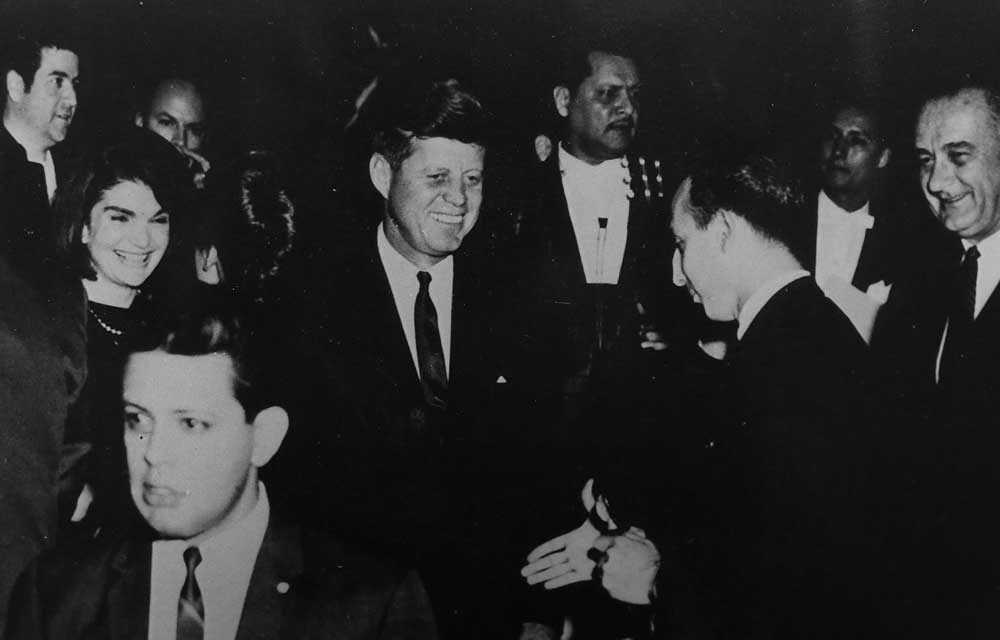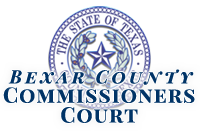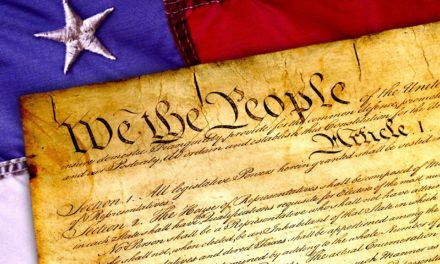On September 20, 2023, at the Marriott Airport Hotel at 6 PM, La Prensa Texas will proudly bestow the prestigious Lifetime Achievement Award upon their distinguished board member, Dr. William Elizondo. This grand occasion marks a profound recognition of Dr. Elizondo’s unparalleled lifetime of accomplishments, remarkable leadership, and unwavering dedication to both the field of optometry and the greater community of San Antonio.
With a legacy of service that has touched countless lives and left an enduring impact, Dr. Elizondo has exemplified the essence of a true community leader. His remarkable journey is characterized by a tireless commitment to positive change and philanthropy and has shaped the course of our local community and inspired generations. La Prensa Texas is privileged to honor Dr. Elizondo’s extraordinary contributions with the Lifetime Achievement Award, celebrating a lifetime filled with compassion, leadership, and enduring impact. This gala promises to be an unforgettable evening, recognizing the indelible mark Dr. Elizondo has left on our community and his invaluable role in shaping a brighter future for all.
Dr. William Elizondo was born to Joe and Helen Elizondo and grew up in San Antonio, Texas. His journey through life has been marked by hard work, dedication, and a relentless commitment to public service. From his early years working at his family’s grocery store to his distinguished military service and his numerous contributions to civil rights and education, Dr. Elizondo’s life story is one of resilience and unwavering commitment.
Early Life and Work Ethic
From a very young age, Dr. Elizondo was no stranger to hard work. He began selling and stocking groceries at his family’s store when he was just six years old. By the time he was eleven, he was working as a bicycle delivery boy and later as a busboy at the St. Anthony Hotel. During his high school years at Brackenridge High School, Dr. Elizondo continued to work part-time, dispensing sodas at Sommers Drug Store, demonstrating his strong work ethic and commitment to self-reliance.
Military Service
and Korean War
Upon graduating from high school in 1948, Dr. Elizondo, along with his childhood friends Rudy Granados and Rudy Castillo, joined the United States Marine Corps (USMC-V) for one year. His journey in the Marines was challenging, including rigorous training at Camp Pendleton, California, before being assigned to the First Marine Division as part of a Replacement Draft in March 1951 during the Korean War. The division was involved in fierce battles against North Korean and Chinese forces in central Korea around Hoang Son and Wonju. The harsh conditions of the Korean winter, with temperatures plummeting to 20° and 30° below zero, took a toll on Dr. Elizondo and his fellow Marines. Despite the challenges, they persevered, and Dr. Elizondo’s leadership as a Sergeant played a crucial role in their fight.
Throughout his service, Dr. Elizondo and his comrades upheld the Marine Corps tradition of not firing at night unless they saw the “whites of their eyes,” demonstrating their dedication to tactical discipline and strategic awareness. Dr. Elizondo served under the leadership of General Lewis “Chesty” Puller, one of the most decorated Marines in history.
After being Honorably Discharged from the USMC, Dr. Elizondo and his fellow Marines received recognition in the form of the Presidential Unit Citation and Korean War Combat Medal for their valor and service during the Korean War.
Education and
Civil Rights Advocacy
Returning to civilian life after his military service, Dr. Elizondo resumed his studies in college while working part-time at the U.S. Post Office. His determination to continue his education led him to graduate in 1959 with an Optometry Doctor degree from the Southern California College of Optometry. He graduated with honors (Cum Laude) and passed the California State Board of Optometry and the Texas Optometry Board.
Dr. Elizondo’s dedication to public service extended to his community involvement and advocacy for civil rights. In 1956, he actively volunteered in empowering Hispanics by helping to elect prominent figures like Henry B. Gonzalez as State Senator, Albert Pena as County Commissioner, and Albert Trevino as Justice of the Peace of Bexar County. These efforts marked a historic moment as Mexican Americans were elected countywide for the first time.
His involvement in LULAC (League of United Latin American Citizens) led to numerous accomplishments, including securing a U.S. Presidential Cabinet member, Secretary of Labor Arthur Goldberg, for the Installation of Officers. Dr. Elizondo also played a crucial role in reorganizing the LULAC Council #2 “Feria De Las Flores” Scholarship Fund into a Corporation. He actively promoted anti-poll tax drives, get-out-the-vote rallies, and anti-tuberculosis campaigns. His advocacy even led to changes in the hiring and promotion practices of Mexican Americans in the San Antonio Police Department.
Changing the Face of
Law Enforcement
In the early 1960s, Dr. Elizondo lobbied the City Public Service Board and San Antonio City Council to relax entrance requirements for cadets entering the police department, particularly challenging the height requirement of 5 feet 10 inches. His efforts resulted in the recruitment and appointment of Mexican American officers, many of whom went on to seek elected public office or hold other law enforcement positions in Bexar County and beyond. Some even became sheriffs, such as Joe Neaves, Ralph Lopez, Roland Tafolla, Armadeo Ortiz, and, in January 2017, Javier Salazar.
Dr. Elizondo’s commitment to diversifying law enforcement extended to the national level when he was appointed as the Chairman of Minority Recruitment for the American Optometric Association in 1960. His involvement in the political arena also led to the election of the first Mexican American State Representatives from Bexar County, John C. Alaniz and Rudy Esquivel, in 1960 and 1961.
National and International Advocacy
Dr. Elizondo’s advocacy efforts reached the highest levels of government. In 1961, he wrote a letter to President John F. Kennedy, recommending the development of a Cabinet position called HUD (Housing and Urban Development), which later came into existence in 1965.
One of the most significant milestones in Dr. Elizondo’s advocacy journey occurred on November 21, 1963, when he met with President John F. Kennedy and Vice President Lyndon B. Johnson at the Rice Hotel in Houston, Texas. This historic meeting marked the first time a sitting U.S. President met with a National Hispanic Organization. Dr. Elizondo used this opportunity to discuss important national issues, including the appointment of a Mexican American to the Cabinet and anti-poll tax efforts in Texas.
Throughout the 1960s and 1970s, Dr. Elizondo continued to be at the forefront of civil rights and community activism. He played an instrumental role in changing hiring and promotion practices for Mexican Americans in various sectors and government agencies, including the Texas Department of Public Safety and the Fourth Court of Appeals in Texas.
Educational Advocacy and Leadership
In 1974, Dr. Elizondo made a significant shift to education and public service when he ran as an independent candidate and was elected to the San Antonio Independent School District (SAISD) Board of Trustees. During his tenure as a trustee, he achieved remarkable accomplishments. He introduced and obtained a policy for “Quality Education for Students” and initiated various educational programs, including the Multilingual School, Pre-Engineering Program, and Full-Day Kindergarten. Dr. Elizondo also banned the use of tobacco in schools, started the Career Center/Museum, and established a 5-year and later a 10-year Education Goals Plan.
One of his most outstanding achievements during his SAISD presidency was a drastic improvement in student Math and Reading scores across all grade levels, bringing them up by one to two years, in a period when national educational standards were on the decline.
Legacy and Recognition
Dr. Elizondo’s lifetime of dedication to his community and advocacy for civil rights did not go unnoticed. Throughout the years, he received numerous awards and recognitions, including the prestigious Dr. Bill Pittman Award at the 100th Anniversary of the Texas Optometric Association Convention in 2000.












